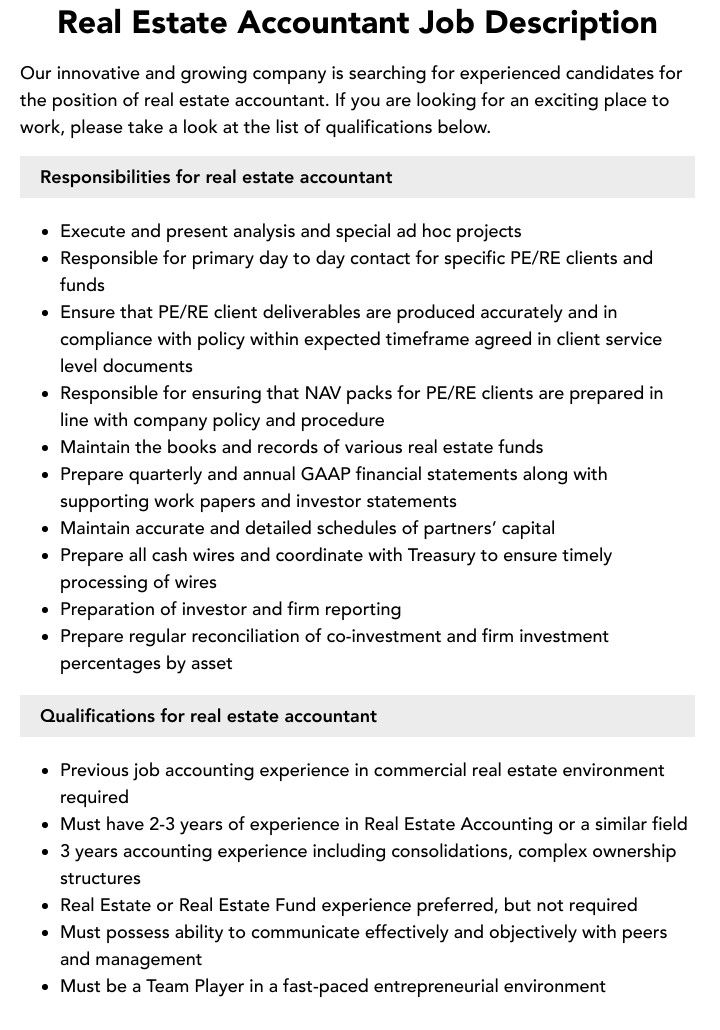Everything You Should Know About Real Estate Tax Services for Investors and Developers
Everything You Should Know About Real Estate Tax Services for Investors and Developers
Blog Article
The Trick Benefits of Applying Building Bookkeeping Practices in Building & Property Firms
The implementation of building and construction accountancy techniques within construction and realty companies presents countless benefits that can significantly boost overall monetary management and project results. By developing strenuous budgeting and cost-tracking mechanisms, companies can attain greater accuracy in financial planning and capital monitoring. These practices not only reduce errors however additionally help with notified decision-making with timely accessibility to vital information. As the market continues to develop, comprehending the full range of these benefits ends up being necessary for keeping competitiveness and attaining sustainable growth. What certain areas of financial monitoring might yield one of the most substantial renovations?
Improved Budget Control
In the realm of construction accountancy, efficient budget control is critical for task success. Boosted budget control entails strenuous surveillance and administration of funds throughout the job lifecycle. Precise budgeting makes certain that costs are approximated realistically, enabling firms to designate funds effectively and minimize the danger of overruns.
To achieve boosted spending plan control, building and construction companies need to utilize thorough price tracking techniques, utilizing sophisticated software options that promote real-time information evaluation. This consists of breaking down task costs into labor, materials, and above, allowing for specific forecasting and changes as needed. Routine budget plan testimonials and variation analysis are crucial in determining discrepancies in between predicted and actual expenses, which can educate prompt decision-making.
Moreover, clear communication amongst project stakeholders is vital for keeping monetary technique. Establishing a society of liability makes certain that all staff member recognize monetary constraints and goals. By promoting collaboration throughout divisions, firms can improve their capacity to reply to financial difficulties proactively.

Improved Money Flow Management

Efficient cash money circulation administration is vital for building firms, as it straight influences their ability to operate efficiently and satisfy job obligations. By using durable building and construction accountancy methods, companies can obtain a more clear photo of their financial position, enabling much better forecasting and source allocation.
One of the key benefits of better capital management is the capacity to expect periods of financial strain. Building and construction tasks usually include significant in advance prices and rising and fall earnings based on job turning points. With effective tracking of income and costs, companies can identify prospective cash shortages and execute methods to minimize them, such as securing credit lines or adjusting repayment schedules with subcontractors.
In addition, timely invoicing and persistent follow-up on receivables can improve cash money circulation. By streamlining these processes, building firms can guarantee that funds are readily available when needed, sustaining ongoing operations and reducing the threat of hold-ups due to cash restrictions. Exact cash money circulation estimates make it possible for firms to make enlightened decisions regarding investments in brand-new projects, equipment, or workers, fostering lasting development and stability within the organization. Ultimately, enhanced cash money flow monitoring is crucial for preserving operational performance and making certain long-lasting success in the affordable construction industry.
Boosted Task Success
Maximizing job productivity is an essential objective for building and construction firms aiming to boost their economic efficiency. By properly tracking job costs, firms can recognize locations of overspending and apply restorative steps immediately.
Additionally, detailed financial reporting and evaluation offer insights right into earnings margins for various tasks. By assessing these margins, firms can make educated decisions on future quotes, ensuring they seek projects that align with their earnings goals. Furthermore, construction accountancy practices promote better communication among task stakeholders, cultivating collaboration that can lead to cost-saving innovations and improved job implementation.
Furthermore, establishing a durable accountancy structure allows firms to accurately examine their performance versus industry benchmarks. This not only assists in recognizing strengths however likewise highlights weak points that need attending to, allowing continuous improvement. Ultimately, boosted job profitability not only strengthens a firm's economic standing yet also boosts its competitive benefit in the building and property market, leading the way for lasting growth and success.
Streamlined Financial Processes
Streamlined monetary processes are necessary for building firms intending to improve functional effectiveness and accuracy in their audit practices. By using and implementing standardized procedures specialized software program, firms can considerably reduce the time and initiative spent on economic administration jobs. Automation of regular jobs, such as invoicing, payroll, and expenditure tracking, decreases human error and makes sure that financial information is processed quickly.
Furthermore, structured procedures help with much better capital administration, an essential aspect for building companies where project timelines and budget plans can be unpredictable. With real-time economic coverage, companies can check their monetary health, enabling quick changes to mitigate any type of cash flow problems. This aggressive approach aids preserve distributor relationships and keeps tasks on timetable.
Incorporating building accounting practices makes it possible for companies to combine numerous economic features, from budgeting to project setting you back, into natural workflows. This combination not just conserves time yet additionally promotes transparency and responsibility amongst team participants. Eventually, streamlined financial procedures add to an extra agile organization, prepared to next page react to market adjustments and job needs while ensuring that monetary integrity remains intact.

Educated Decision-Making Insights
Educated decision-making is Construction & Real Estate essential for building companies navigating complicated job landscapes and varying market problems. By carrying out durable construction audit techniques, firms can utilize precise financial data to assist in calculated options. This data-driven strategy makes it possible for supervisors to examine project viability, assign sources effectively, and anticipate money flow fluctuations with better precision.
Building and construction audit gives insights into price monitoring, allowing firms to determine areas of overspending and carry out rehabilitative measures without delay. Comprehensive spending plan tracking and variation analysis can disclose discrepancies in between predicted and real costs, informing future project proposals and techniques. Construction & Real Estate. Additionally, prompt economic reporting improves the ability to reply to market modifications, making certain that firms stay competitive and nimble
Furthermore, accurate monetary insights foster far better communication with stakeholders, including clients and capitalists. Clear economic coverage builds trust fund and self-confidence, as stakeholders can see the firm's financial health and job performance at a glance. Inevitably, educated decision-making, backed by sound accountancy methods, outfits building companies to navigate challenges, profit from opportunities, and drive sustainable growth in an increasingly affordable sector.
Final Thought
To conclude, the execution of construction bookkeeping methods in building and real estate firms significantly boosts economic administration. By assisting in boosted spending plan control, boosting capital management, and increasing task profitability, these techniques contribute to streamlined monetary procedures and notified decision-making. The fostering of such methodologies not only promotes liability amongst stakeholders yet also outfits firms with the agility necessary to navigate varying market problems, ultimately resulting in higher total success in this content job execution.
The application of construction bookkeeping practices within building and genuine estate firms provides many benefits that can significantly improve general financial administration and project results. Building tasks commonly entail significant in advance costs and rising and fall earnings based on job turning points. Furthermore, building and construction audit techniques promote far better interaction amongst project stakeholders, fostering partnership that can lead to cost-saving advancements and enhanced job implementation.
Incorporating building and construction accountancy techniques enables companies to combine numerous financial functions, from budgeting to job costing, into natural operations. Real Estate Tax Services. In-depth budget tracking and variation analysis can reveal inconsistencies between predicted and real expenses, notifying future project bids and techniques
Report this page